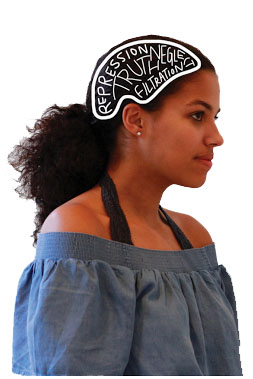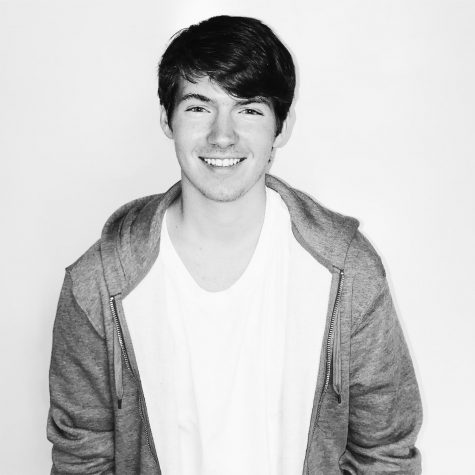Neglecting to tell stories
How & why we continuously repress truths
 photo credit: Ashlyn Kehoe | illustration credit: Eva Berezovsky
photo credit: Ashlyn Kehoe | illustration credit: Eva Berezovsky
Repressing current events as a result of over-politicization
Our school fosters a community of bright, visionary thinkers, each of whom are continually developing their own personal beliefs. As students, these beliefs are based on exposure to diverse perspectives. However, such dialogue is a scarcity throughout our hallways and classrooms; despite cultural significance, we perpetuate the repression of important conversations.
When remembering tragedies such as Las Vegas, it is important to distinguish that compassion and politics are two separate entities. We can express care for victims’ families while simultaneously working towards future solutions.
“There has to be a way to do both,” says Ben Cady. “There has to be a way to honor the victims while also saying, ‘How can we keep this from happening again?’”
It is equally as necessary to acknowledge loss as it is to analyze the subsequent issues raised, given that they are consistently intertwined.
“Everything is political,” says Cady. “There are political ramifications for everything that happens in the world. Let’s take Las Vegas. Lots of people died. Lives were ruined. There are so many families and people that will never be the same after that event. It is important to remember this, to honor this, and do what we can to make it better. But at the same time, it’s obviously going to lead to discussions on gun control, mental health and security.”
The danger of repression & how Justice League strives to hinder silence
Despite the constant flow of opinions in our education, the repression of issues and their memories is the result of an inflexibility to step outside of our own beliefs.
“Debates can lead to intense arguments,” says Peter Barry ‘19. “People usually try to avoid getting into fights.”
All too often, civil discourse becomes a verbal battleground between opposite sides of the spectrum. Tensions rise when stubborn people have strong opinions, and that makes productive conversation extremely difficult. Petty squabbles and exchanges of insults do nothing but harm to our personal viewpoints.
We as a school cannot gain comprehension of serious issues without listening to each other. To combat this, years back, the Justice League founded Just Talk, a conference where current events were discussed in the Cherne forum during lunch.
“The idea was to invite more members from the student community to learn about and discuss a number of hot-button issues,” says JJ Kahle. While this is an ideal thought, the club saw a lack of varied attitudes. “Sadly, for the Justice League, not a lot of other perspectives seemed to show up at these conversations. . . No one really grows when functioning within an echo chamber.”
A common form of discourse at Blake is between those of similar beliefs. This is simply unproductive, as no new ideas are introduced. Both liberals and conservatives become increasingly more stubborn as they hear their own ideas repeated back to them over and over again. As a result, their ability to understand opposing viewpoints grows even weaker.
Justice League plans to relaunch Just Talk in hopes of a fresh new audience willing to peacefully disagree with one another. That is certainly a viable platform, but friendly debate can take place anywhere both in and out of the school. It simply requires our confidence and open minds. When we preserve our memories and allow them to teach us new things, we become stronger as individuals and a community.

Hi, my name’s Brent, and I’m a senior. Starting with sports illustrated when I was younger, I've always read a lot of journalism, so I decided to give...



